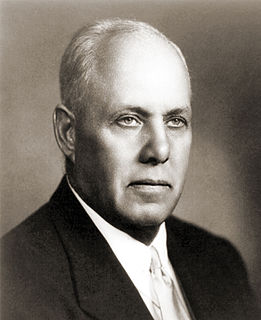A Quote by George Meany
Every piece of progressive social legislation passed by Congress in the 20th century bears a union label.
Related Quotes
There you go again. When I opposed Medicare, there was another piece of legislation meeting the same problem before the Congress. I happened to favor the other piece of legislation and thought that it would be better for the senior citizens to provide better care than the one that was finally passed.
D-Day represents the greatest achievement of the american people and system in the 20th century. It was the pivot point of the 20th century. It was the day on which the decision was made as to who was going to rule in this world in the second half of the 20th century. Is it going to be Nazism, is it going to be communism, or are the democracies going to prevail?
Working with Republicans in Congress we've already signed 88 pieces of legislation. We get no credit. They always say, well, President Trump really needs this tax bill because he hasn't passed any legislation. Well, so far in 10 months we've passed more during this period of time than any other president in the history of our country and the second - let's call runner up - is Harry Truman, was second.
The different American experience of the 20th Century is crucial because the lesson of the century for Europe, which essentially is that the human condition is tragic, led it to have a build a welfare system and a set of laws and social arrangements that are more prophylactic than idealistic. It's not about building perfect futures; it's about preventing terrible pasts. I think that is something that Europeans in the second half of the 20th century knew in their bones and Americans never did, and it's one of the big differences between the two Western cultures.
































